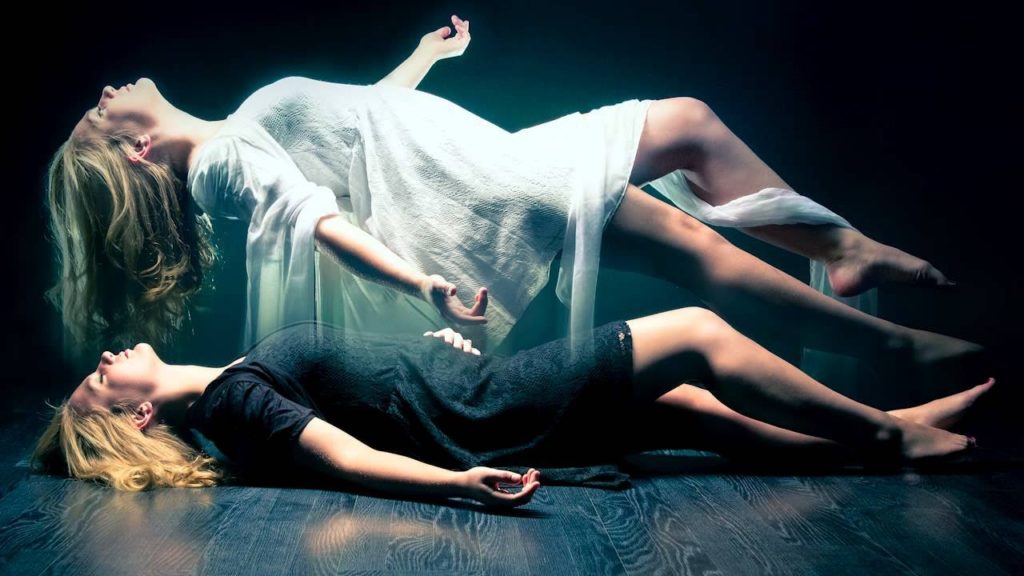
Although every normal way of looking at death implies that it is both universal and permanent, paradoxically, the majority of people don’t believe these truths about death at all. The fact is that a majority of people believe in the “ever-me”. This is the me that we currently are, but in some real way, see as existing outside of time. It’s the me through which we interpret the world. It’s the me whose every discomfort or inconvenience we spend an inordinate amount of care upon. I call it the ever-me because, for most of us, we at some deep level believe that the we that we currently are is someone who has always been and will, in some way, always be.
When I say that we see ourselves as always having been the person we are, I mean this in two ways. First, as humans, we have a difficult time seeing the contingencies that have gone into making us who we are. In other words, the way each of us sees the universe isn’t a universal perspective, but rather one restricted and even created by the historical, cultural, and biological circumstances that have made us the person that we are. What’s very hard to see, however, is that the seeing and doing that seem so natural to us are a once in the universe occurence of perception.
Another way our ever-me mistakenly sees itself as always having been is that it sees the current version of itself as the definitive version. To understand this, I want you to summon your 13-year-old self (or if you’re precocious enough to be reading this at a young age, a previous you). Ask that self what its greatest fear is. Ask it whom it would most desire to be closer to. Ask it the one thing it knows about the world that most people deny.
If you’re at all removed in time from that 13-year-old self, you probably have a hard time even guessing what that previous you would have answered, and if you can guess what that version of you would say, likely your answer today would be entirely different. That 13-year-old you was just as much you as the you that you are today, but somehow we forget that the person we currently are, just like that 13-year-old was, is no more permanent than a ripple in the river of our existence.
Of course, the aspect of the ever-me that is perhaps of most interest to Thanatism is the me that shall remain once our earthly selves have passed. To understand how deeply entrenched and universal our belief in the afterlife is, I think it makes sense to look at some statistics. Fortunately, Americans have been widely polled about their belief in the afterlife since 1944, and this polling has provided some incredibly useful data. According to Cornell’s Roper Center for Public Opinion Research, less than 20% of Americans believe that death is the end (most polls put this around 15%). Remarkably, this number has remained largely unchanged since polling began 75 years ago.
As you may expect, religious people tend to believe in life after death more than non-religious people, but you may be surprised that a survey conducted in 2014 by The Austin Institute for the Study of Family and Culture (AISFC) reveals that 32 percent of Americans who identified themselves as agnostics and atheists ALSO believe in an afterlife and that less than half this group believes that death is final. Also of interest is that according to a recent Canadian survey, although only 66% of society’s favorite whipping generation, the Millennials, believe in God (compared to 80% of people 70 or older), they are actually significantly MORE likely to believe in an afterlife, with 70% of Millennials believing in one, compared to only 65% of those over 80.
Not only do most of us believe in an afterlife, we’re also quite certain about that belief. In the same American polls going on since 1944, less than 10% of people answer either that they “don’t know” or have “no opinion” about the afterlife. I find this remarkable given that no matter what our beliefs about life after death are, none of them can be proven definitively.
I also love how much we apparently know about the afterlife. 90% believe that we’ll be happy. 88% think that there will be love between people, though only 14% believe there will be sexual relations between spouses (apparently one lifetime is enough of that!). 81% believe that crippled people will be able to walk, but only 20% believe we’ll be playing sports. Most importantly, of course, 87% of those who believe in heaven, believe that they will be going there.
My question is, where are we getting all this information from? How are we all so certain? I mean, even if the obvious non-functionality and decay of every human who has ever died doesn’t definitively prove that death is the end, it certainly doesn’t imply that death is a new beginning. What’s going on here? How can people who are so skeptical about even the smallest claims, KNOW that there’s an afterlife where they’ll be happy but without their spouses or any sports?
Billions of people walking this planet, most of us spiritually if not intellectually convinced, in spite of all the evidence to the contrary, that the “we” that we currently are will always be–if this mystery doesn’t excite you, you are already dead. If you don’t believe that this level of cognitive dissonance, one that is so deep and so widespread, doesn’t affect us individually and as a society, then there’s no reason to read any further.
If, however, you’re beginning to get a sense, even if it’s just an inkling, that something might be going on here, something huge, something weird, something the resolution of which could transform this world like nothing before it, then buckle up. Because what is to follow will be an unflinching examination of why this massive contradiction exists in all of us and the extraordinary transformation that we can experience once it’s resolved.
